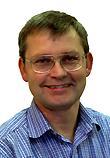CCB seminar June 29th Carl-Henrik Heldin

Title of his talk: "Signaling via receptors for PDGF and TGF-beta - possible targets in tumor therapy"
Venue: Auditorium in the Research Building, the Norwegian Radium Hospital
Refreshments are served in the lobby after the seminar.
Abstract
Platelet-derived growth factor (PDGF) and transforming growth factor-â (TGF-â) are important factors which control the growth, survival motility and differentiation of cells. PDGF stimulates the growth mainly of connective tissue cells, whereas TGF-â is one of the most potent growth inhibitors known to date and inhibits the growth of most cell types. PDGF and TGF-â exert their cellular effects by binding to receptors equipped with tyrosine and serine/threonine kinase activities, respectively. Both factors have important roles during the embryonic development and in adult tissue homeostasis. Dysregulation of PDGF signaling contributes to the development of certain diseases characterized by excessive cell growth including fibrotic disorders, atherosclerosis and malignancies. TGF-â has a complex role in cancer, and can have tumor promoting as well as tumor suppressive effects. Initially, TGF-â has tumor suppressive effects due to its ability to inhibit cell growth, but tumor promoting activity by enhancing the invasive properties of tumor cells and by suppressing the immune system and promoting angiogenesis at later stages of tumor progression. The understanding of how PDGF and TGF-â signaling pathways are dysregulated in cancer can guide development of new therapy.
About Carl-Henrik Heldin:
Carl-Henrik Heldin is Director and Professor in Molecular Cell Biology, Ludwig Institute for Cancer Research, and Vice-President in the European Research Council. He has published more than 350 research articles and has been a pioneer in the field of PDGF and TGF-â signaling and their normal function and role in disease. For this work, he has received several scientific awards, including the prestigious Pezcoller-American Association for Cancer Research Award (2002).
